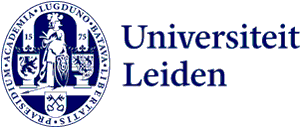
Dutch Research Council pilot programme funding for seven researchers
Seven researchers from Leiden University have made a successful application to the Open Competition SSH (Social Sciences and Humanities) XS, a Dutch Research Council pilot programme.
The programme is for researchers in the social sciences and humanities who received their PhD between five and ten years ago. The proposed research is ground-breaking and it is not certain in advance whether the intended objectives will be achieved. A maximum of 50,000 euros can be applied for.
Below are the Leiden University projects that will receive funding.
Youth mental health at risk: testing the role of accelerated biological maturation, poverty and sex on internalising problems
Applicant: Marieke Bos (Psychology)
Young people’s well-being is a serious concern in current society. Across adolescence, there is a dramatic increase in internalising problems, including anxiety and depression and strikingly, girls have a two- to three-fold higher risk of developing such psychopathology. Combining two longitudinal datasets, this project will test the innovative hypotheses that accelerated biological maturation is a key mechanistic pathway leading to internalising problems, and that this pathway is moderated by sex and poverty. Understanding the joint contribution of biological and contextual factors leading to internalising problems will provide the highly needed building blocks to substantially optimise prevention and intervention programmes.
New perspectives on English in Scotland: Exploring the language of the lower classes in the nineteenth century
Applicant: Mo Gordon (Centre for Linguistics)
Traditional histories of English primarily focus on the development of written Standard English in England. Moreover, due to the social stratification of literacy, the ‘standard’ history is largely based on materials that reflect the language of higher classes. This project aims to adjust the traditional view by (1) shifting the focus to Standard English in Scotland and (2) exploring the hitherto underexposed role of the lower classes in shaping a unique variety of (written) Standard English in Scotland. This will be achieved by making available and studying unique lower-class material in the form of pauper letters from the nineteenth century.
Transitioning into adulthood in an era of digital misinformation
Applicant: Ili Ma (Psychology)
Misinformation is a growing problem in modern society, particularly with the rise of social media and online communities. Even after misinformation is labelled as debunked, people may still believe it and be influenced by it. Adolescents in the transition phase to adulthood are particularly vulnerable to misinformation due to their still developing self-identity and critical thinking skills, combined with full autonomy over their social media use. I propose to identify the risk factors and contexts that make these young individuals susceptible to misinformation. The results will be used to develop targeted interventions to make young people more resilient against misinformation.
Guide Dogs in Medieval Artistic and Textual Sources
Applicant: Krista Murchison (Centre for the Arts in Society)
It was once believed that guide dogs for the blind are a modern (i.e. post-1400) phenomenon. But guide dogs existed even during the medieval period. The goal of this project is to transform an important but often overlooked area of disability studies through the first large-scale study of medieval artistic and textual representations of guide dogs from Northwestern Europe. By collecting and analysing these representations, this project will explore for the first time what they can tell us about medieval approaches to guide dogs and, in so doing, strengthen our understanding of the roots of modern-day attitudes toward guide dogs.
Promoting social curiosity in opposing views of others
Applicant: Marret Noordewier (Psychology)
People are frequently exposed to opposing views of others (e.g., on climate change or immigration). In this context, there are increased worries about polarization and divides between different groups in society. This project proposes an intervention to promote social curiosity in opposing views of others. The aim is to test whether negative feelings derived from opposing views of others can be interpreted as a normal part of dealing with these views, and a sign that there is something to learn about others. This may increase curiosity and exploratory behavior, and boost tolerance and connection to those with opposing views.
How universal are ‘shape’ concepts? Exploring shape and dimensionality in a pastoralist lingua-culture
Applicant: Sara Petrollino (Centre for Linguistics)
This study aims to reveal how language users think and talk about their experiences of things they see in the world. Specifically, the project seeks to understand how people in an African pastoralist culture think about shapes and dimensions, and how these concepts are linguistically expressed in a language that ‘lacks’ words for geometrical shapes in the Anglo-cultural sense. Based on the view that language is the mirror of culturally shaped minds, this investigation can potentially show the direct effects of an African pastoralist culture on visual perception, contributing to our understanding of the language-culture-cognition nexus.
Open-source research and the war in Ukraine: intelligence for the people by the people?
Applicant: Damien Van Puyvelde (Institute of Security and Global Affairs)
Russia’s war in Ukraine has brought unprecedented attention to open-source intelligence (OSINT) researchers who collect and analyse publicly available information on security threats. Some observers believe easy access to online information on this war has ‘democratised’ intelligence. The investigative group Bellingcat even claims to be an ‘intelligence agency for the people’. This exploratory project will move the study of intelligence beyond its narrow focus on government agencies by answering the following central research question: Who are open-source intelligence activists and how reliable are their contributions to public understanding of Russia’s war in Ukraine?
